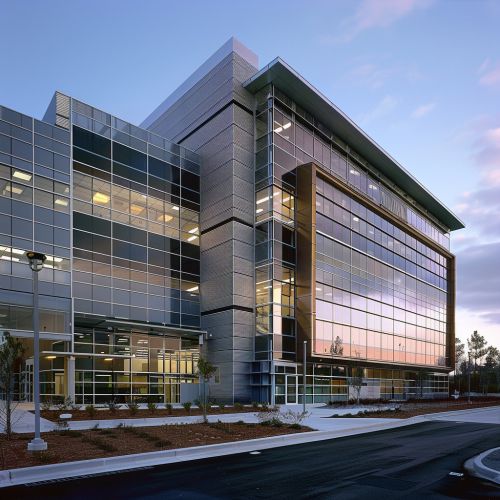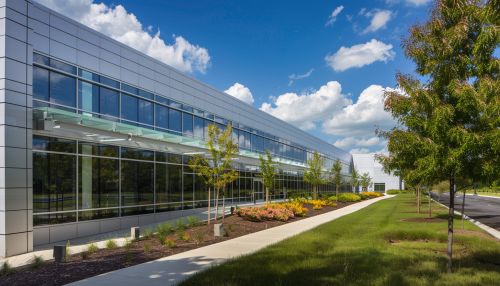Bristol-Myers Squibb
History
Bristol-Myers Squibb (BMS) is an American pharmaceutical company, headquartered in New York City. The company was formed through the merger of Bristol-Myers Company and Squibb Corporation in 1989. Bristol-Myers was originally founded in 1887 by William McLaren Bristol and John Ripley Myers, while Squibb was founded in 1858 by Edward Robinson Squibb. Both companies have a long history of innovation in the pharmaceutical industry, contributing significantly to the development of various medications.
Research and Development
Bristol-Myers Squibb is renowned for its extensive research and development (R&D) efforts. The company invests heavily in R&D, focusing on several therapeutic areas including oncology, cardiovascular diseases, immunology, and fibrosis. BMS operates multiple research facilities worldwide, employing thousands of scientists and researchers. The company's commitment to innovation has led to the development of numerous groundbreaking drugs.


Key Products and Therapies
BMS has developed and marketed several key products that have had a significant impact on patient care. Some of the most notable include:
Oncology
1. **Opdivo (nivolumab)**: An immunotherapy drug used to treat various types of cancer, including melanoma, lung cancer, and renal cell carcinoma. Opdivo works by inhibiting the PD-1 pathway, thereby enhancing the body's immune response against cancer cells.
2. **Yervoy (ipilimumab)**: Another immunotherapy drug, Yervoy is used to treat melanoma. It targets CTLA-4, a protein receptor that downregulates the immune system.
Cardiovascular
1. **Eliquis (apixaban)**: An anticoagulant used to reduce the risk of stroke and systemic embolism in patients with nonvalvular atrial fibrillation. It is also used for the treatment and prevention of deep vein thrombosis and pulmonary embolism.
2. **Plavix (clopidogrel)**: An antiplatelet medication used to prevent blood clots in patients with cardiovascular diseases. It is often prescribed after a heart attack or stroke to prevent further cardiovascular events.
Immunology
1. **Orencia (abatacept)**: A biologic medication used to treat rheumatoid arthritis and juvenile idiopathic arthritis. Orencia works by inhibiting T-cell activation, thereby reducing inflammation and autoimmune responses.
2. **Nulojix (belatacept)**: An immunosuppressive drug used to prevent organ rejection in kidney transplant patients. It selectively blocks the activation of T-cells, which are responsible for the immune response against the transplanted organ.
Strategic Collaborations and Acquisitions
Bristol-Myers Squibb has engaged in numerous strategic collaborations and acquisitions to enhance its product portfolio and expand its research capabilities. Some notable collaborations include partnerships with companies like Pfizer, Roche, and AstraZeneca. These collaborations often focus on co-developing new therapies and sharing research data.
In terms of acquisitions, BMS has made several significant purchases, including the acquisition of Celgene in 2019. This acquisition bolstered BMS's oncology and immunology portfolios, adding key products like Revlimid (lenalidomide) and Pomalyst (pomalidomide).
Corporate Social Responsibility
Bristol-Myers Squibb is committed to corporate social responsibility (CSR) and sustainability. The company has implemented various initiatives aimed at improving global health, reducing environmental impact, and promoting ethical business practices. BMS's CSR efforts include providing access to medicines in underserved regions, supporting healthcare infrastructure development, and conducting clinical trials in a manner that respects patient rights and safety.
Financial Performance
BMS is a publicly traded company listed on the New York Stock Exchange under the ticker symbol BMY. The company has consistently demonstrated strong financial performance, driven by its robust product portfolio and strategic investments in R&D. BMS's revenue is primarily generated from the sales of its pharmaceutical products, with oncology and cardiovascular drugs being the major contributors.
Future Directions
Looking ahead, Bristol-Myers Squibb aims to continue its focus on innovation and patient care. The company plans to expand its R&D efforts into new therapeutic areas, including gene therapy and regenerative medicine. BMS is also exploring the potential of artificial intelligence and machine learning to enhance drug discovery and development processes.
